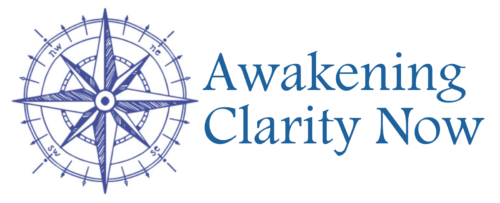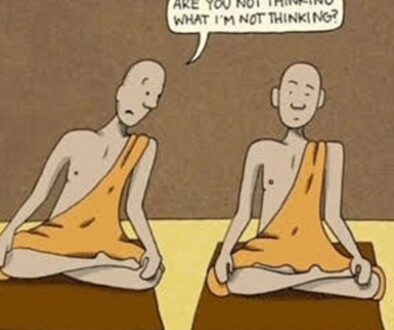A Finnish Philosopher and Bestselling Author’s Own Spiritual Story, Including His Experiences With Fred’s Living Method of Awakening

In Search of the Real No-thing: My Spiritual Journey
JP Jakonen, PhD
A few years ago, I started having subtle mystical experiences amidst daily life. There was an experiencing of myself as a void or a hole into which things disappear. When I was driving a car, there was a feeling that the road, the scenery and the other cars were emanating from this hole and vanishing into it. Sometimes it felt like the sense of me was being erased, as if fading from view. I also noticed the me grasping onto small things, as if holding on for dear life. If my kids called for my attention, the me would stall a bit, and only then come to see what the matter was. There was an interesting dialectic of the me grasping and the me loosening. These experiences were not flashy, but from my previous history I could not pass them by.
AFTER THE SAUNA, MY ORIGINAL FACE
When I was 13 years old I had a profound experience that changed my life.
Prior to that experience, I had no interest or background in mysticism, philosophy or religion. I was into horror movies, Marvel and DC comics, Stephen King books, and films by the cult director John Waters. Other than that, however, there was no interest in the matters of spirit, soul, or whatnot.
I was at my childhood home and had just gotten out from a sauna. I was in the changing room, standing before a mirror, when for some reason I started looking at my eyes in the mirror and repeating the word ”I”.
Why this happened, I have no idea, other than teenagers do strange shit.
After a short while I started getting into a sort of a trance. The first thing I noticed was that the repeating of the word ”I” was continuing as if by itself, like it was distanced from my normal will to make things happen. It seemed like a reflex, where a doctor hits you in the knee with a hammer, and the legs springs up.
Then, the trance-like state went beyond what I had ever experienced.
The “I” of memories, thoughts and interests become an object of experience. Instead of seeing through the I, like we usually do, the “I” was now seen like anything else: as an object out there, instead of a subject or a reference point in here, from which the out there is normally seen. It was like I had entered a new room, or rather, a new dimension.
Even after 30 years, I remember the experience vividly.
This went on for some time; for how long, I do not know. Maybe no more than 30 seconds. Maybe for a minute or two.
I saw for a fact that this personality is not all there is to being human.
But then, I started feeling a sensation of being cold and scared.
A thought-feeling entered into the experience: “What if this stays on forever?” and “What if I can’t go back to that familiar sense of ‘me-ness’?”
Although I had no experience of hallucinogenic substances, there was a sense of a trip with no return. I had read John Waters’ book Shock Value when I was 11 (!) and knew about the effects such drugs could induce.
What I did then was both instructive and intuitive.
I started to remember who I was.
Piece by personal piece, I re-membered my self-unit into being as if piecing together a puzzle. The pieces included my hobbies (“I remember that I like horror movies”), my name and age (“I remember I am called Juppe, and I am 13 years old”), and the name of our Golden Retriever (“I remember my dog’s name is Juice”). This was a re-membering of the self, calling back the members that form the unit of the separate me-sense, and it worked.
My self-sense started coming back, like it was retreating from this strange new room. Then, to really get back to reality, I called for my mom.
The moment she said, ”Yes, what?”, I was back to being me.
AFTERMATH AND AFTER MATH
The experience was stunning and the change of state so profound, that I turned it into an experiment, which I did a few times afterwards. I remember it producing similar but not as radical results.
Soon enough, however, I was back in the business of being a teenager: watching horror films, annoying teachers, taking my dog for a walk, and eating more potato chips than was probably good for my development.
I had nothing to do with mysticism, philosophy or spirituality until a second awakening happened. By then I was in high school, suffering through a boring math class, after my first relationship had ended. It was my first real romance, and we were together for six months, which is a lifetime when you’re 18.
I had never experienced the overwhelming sense of sadness, loss, and pain I was feeling at the time. I was face to face with the most universal human experience of all, that of suffering after losing someone.
The funny thing is, underneath the suffering, I was lying about its roots. That proved to be both the Alpha and the Omega of the suffering.
You see, the girl and I were not a good match. The urge to be with her, however, and, ultimately, to be with somebody, to feel how a random you-ness would love this random me-ness, was so strong that to have it end felt like the end of my world.
So, one day I was sitting in a high school math class.
I had spent the last four months trying to deal with the sadness, depression and suffering I was experiencing. I saw no way out but to try and think my way through. We were no longer communicating, so all I could do was try and figure out why and how there could be a suffering this intense.
From the moment I woke to the moment I went to sleep, the “I” was in a cloud of psychological pain, which I wanted more than anything to dissipate.
Then, in the midst of the math class, I had a sudden awakening.
Unlike the one I had after the sauna, this was not a change of state, but an intellectual enlightenment, if there ever can be one. It was preceded by four months of quite intense inquiry, and it took the form of an understanding of how personal suffering is born and how we can be free from it.
THERE’S EVERYTHING WRONG WITH RIGHT NOW IF YOU LIE ABOUT IT
My suffering was based on an original lie.
I made up this lie by telling myself I should be with this girl, and then, after we broke up, that I am sad because I am no longer with this girl.
In reality, neither was True.
In truth, I did not want to be with her. I wanted to be with the feeling of being in love. That was True, was then, and still is, forever and always, in the eternal Now, as that is who we are: be-ing, the process of a verb instead of the static noun, in Love, which is where we are.
About all this I lied, and that was the original sin that caused the suffering. I missed the mark of reality, resulting in a psychological tidal wave of sadness. Had I been truthful instead of believing my own story, there would have been no suffering at all. There would have been just be-ing as the Love that expressed my true nature through the interpersonal We-space of a romantic relationship.
In retrospect, I understood how suffering is manufactured not only by us not wanting what is, like Byron Katie teaches in her book Loving What Is, but also by us lying about our wanting.
I understood there is an ontological dimension and a psychological dimension to our suffering, and those two need to be separated.
The ontological dimension stems from the fact we think we know what should happen, instead of what is happening. The psychological dimension stems from the lie that we tell to ourselves about what we want to happen.
In my experience, both are pretty damn hard to unroot.
As a result of understanding how my suffering was born, it ceased to be.
I saw that I had lied to myself about what I wanted, and when that lied-about was taken away, suffering appeared.
When I spoke the truth about it to myself, there was no suffering at all.
“What’s wrong with right now unless you think about it”, says Sailor Bob Adamson in a famous quote. There’s everything wrong with right now if you lie about it, say I in a less famous quote I just coined.
Around this time I started finding books that reflected my experiences on freedom and suffering. First book that I stumbled on was called We’re All Doing Time by a guy named Bo Lozoff. He worked with prisoners, offering them counsel and advice through meditation, yoga and general life wisdom. The book offered a hippie-ish angle which spoke to me, being a huge Woodstock music fan. It also looked like it was written with an old typewriter, which looked cool.
Then I found Osho. His books, his eclectic approach and his wide knowledge – he used to be a university philosophy professor – really blew my mind. I felt as if it was I who had written those books, which, of course, if you don’t think about it, was True. I really loved his Zen treatises (Ah! This!, The Zen Manifesto and the Zen: The Path of Paradox trilogy), The Mustard Seed about the Gospel of St. Thomas, and The Autobiography of a Spiritually Incorrect Mystic, with photos of him posing with a fleet of Rolls Royces (about 96, which is nothing compared to the dictator of Turkemenistan, who was rumored to have 600 of them). I also came upon the Conversations with God trilogy by Neale Donald Walsch, Awakening by Anthony de Mello, and The Power of Now by a man with a funny taste in purple wool vests called Eckhart Tolle.
All of those books confirmed my faith that there are “more things is heaven and earth, that is dreamt in our philosophy”.
I would go on to describe this branch of knowledge as emancipatory philosophy. I see it as the third major force in our ways to love wisdom – philosophy by definition – besides theoretical and practical philosophy.
The three most fundamental problems our species has grappled with are “what is real” (theoretical philosophies of ontology and epistemology), “how to live together” (practical philosophies of ethics) and “how to deal with suffering” (emancipatory philosophies). The problem is that emancipatory philosophies have somehow escaped the radar of philosophical classification. They have almost never been counted among philosophical approaches, although their questions appear in the earliest written sources, from the pre-Socratics to Advaita Vedanta. The fact that emanipatory philosophy is often seen as “spirituality” or “religion” is not helpful. Try and decipher the entry about “Spirituality” in the Oxford Handbook of The Study of Religion (2016), and live to tell the tale. Not to mention that an earlier version of the Encyclopedia of Religion (1987) lacks an entry on “spirituality” altogether. Even the experts seem to confuse, or purposely complicate, these issues.
There is also the added issue of most “spiritual” approaches being pre-rational, not trans-rational. These forms of emancipatory philosophy offer legitimate, but not authentic spirituality. They help us translate everyday problems into something manageable. That is noble and good. They do not, however, help us transform into seeing our original true nature which both includes and transcends everything relative, including problems, joys and other phenomena. Authentic transformative spirituality is a rare phenomenon in the field of religious studies, and most scholars simply are not adept at recognizing it. They make what is called a pre-trans-fallacy, where pre-rational and transrational spirituality is lumped into one category of “not-rational”, and this is part of what makes the whole discipline a bit of a mess. (There are also scholars who have edified the non-rational, thus making the “elavationist” version of the fallacy; others have downplayed the transrational and reduced it into the pre-rational, making the “reductionistic” version of the fallacy. But that’s another story for another time.)
GOING TO COLLEGE AND STARTING A BUSINESS
When I was 22, I had no real purpose in life other than not wanting to work.
As any self-help addict knows, that’s not a good plan for unleashing the giant within.
Then, quite by change, I found an academic discipline called Comparative Religion, also known as The Study of Religion/s, or Religious Studies.
It seemed like the perfect avenue to channel my interests, so I started cramming for the entrance exam. Taking with me just the book we were supposed to read (“The World’s Religions”) and a week’s groceries, I retreated into my grandfather’s house in the Finnish countryside and started reading. Life took on a nice, steady rhythm. Waking up early, doing some push-ups, making a pot of coffee and pouring it into a thermos, reading until lunch, then having a break, and reading again until three or four in the afternoon was a grounding experience.
After a week I was ready for the exam. I took it, and was happy to be one of the 20 students selected out of 200 that year to study Comparative Religion. (In Finland, as in most of Europe, tuition in University is free, and the students are selected through their merits in the entrance exam.)
For the next six years I studied Comparative Religion, Philosophy and Psychology at the University of Turku. The first year was a real mess, as all the competing theories about religion (“There is no ‘religion’” – the Sui Generis theory, or “Religion is due to our species’ tendency to antropomorphise” – the Faces in the Clouds theory, or “Religion is just a social construction” – very popular among the postmodern academics at the time) really left me no place to hang my intellectual hat on.
It was not until I found Ken Wilber during the summer break between my freshman and sophomore year, that religion as a phenomenon started making sense. For those who don’ t know his work, Ken Wilber is an American philosopher who is really good at making sense of seemingly opposing concepts, ideas and approaches, and showing how they might fit together as part of a bigger picture. His big picture “Integral” philosophy so appealed to me that I soon found myself reading through his 30 or so books, doing my master’s thesis on him, and generally proselytizing his approach on everyone with a set of ears and a heartbeat.
For those who know, this is typical of the early phase of getting into Wilber. The mid-phase is called “oh, fuck it”, and the third phase – for those lucky enough to get there – is called “let’s make it practical”.
My third phase begun as I started translating Wilber’s book A Brief History of Everything into Finnish and enrolled into a vocational training to become an Integral Coach. After getting my master’s degree, I started a coaching and consulting business, Integral Foresight Finland, mainly because I still did not want to work a real job.
The freedom of being an enrepreneur gave me time to translate more of Wilber’s works and to write my own books on leadership and stress-management. I even wrote a philosophical novel, published as “At Home in the Kosmos”. In December 2020 my PhD dissertation “Ken Wilber as a Spiritual Innovator” was accepted, where I argued that spiritual traditions need conceptual innovations in order to thrive in today’s world. Now I was a Doctor of Philosophy, operating my own private practice.
Still, there was something missing.
Or, put another way, I had everything, but I wanted Nothing.
MEETINGS WITH REMARKABLE MEN
In my college years I had started meditating, attended a 10-day Vipassana retreat, and even started a Zen group with my wife. Then, we had our first child and moved to a tiny lighthouse island for a year.
I had, however, sustained a period of about seven years where I went to weekly meetings with a Gurdjieff Work group. G.I. Gurdjieff was a mystic philosopher who taught an idiosyncratic form of noticing personal stick points that hinder our awakening. He did that in various forms, like group work, self-inquiry, and sacred dances called “Movements”, until his death in 1949. His approach, called Work, and detailed in the book In Search of the Miraculous by his pupil P.D. Ouspensky, was continued through a lineage that can be traced back to Gurdjieff.
Our group had a teacher from that lineage, an older American gentleman called Bob, a lifelong practicing Buddhist, who assisted us in our search for something Real. I found the Work to be very demanding, quite rewarding, and surprisingly comprehensive, in a very integral sense, including practices for body, mind, spirit and shadow through working on self, working with others, and working for the sake of work itself. However, moving to an island that took a four-hour boat journey from the mainland ended all that for me.
About ten years later I was living the life Zorba the Greek called the full catastrophe. I had a wife, three kids, a business to operate, books to write and errands to run. I was still in search of the nothing.
Googling “nonduality” produced enough results for a lifetime. Luckily, I found three names that stood out: Francis Lucille, Dr. Greg Goode, and Rupert Spira. As it happened, I had a business trip to the US in my schedule. I checked to see if any of these men would be in the area. As it happened, Mr. Spira was speaking in New York on the exact day I was going to be in the city.
Prior to the trip I sent an email to Greg Goode, asking if he was available for a meeting. He was not doing meetings, but was really generous with his time via email. I explained to him the experience I had with being a hole or a void, and he answered simply by saying that “the hole you liken yourself to is your true nature”. He also advised that there is no need whatsoever to try and revisit any earlier experiences, however mystical or profound they felt at the time. Understanding is all. He also said that many people who seek the Real waste their time trying to go back to what they once experienced.
“So this is it, huh?”, I wrote back, relieved that the search was, at least in theory, over. I understood that there might be one more step I could take to deepen this understanding or accepting what I already knew. Way back in the early years of college, I had started to read a book called I Am That by an Indian teacher Nisargadatta Maharaj. I got through 200 pages on a bicycle trip in Scotland (oh, the hills!) with my wife, but then went on to read something lighter. If you consider The Fourth Way by Ouspensky be lighter, that is.
I decided to order the book and begun where I had left off 16 years earlier.
It was around this time I started listening to a podcast called Awakening Clarity by a South Carolina-based “unteacher” Fred Davis. What kept my interest going, besides his pointers, was his homey southern accent. It gave the whole thing a nice, unpretentious twist. I got some of his books on audio. Listening to Awaken Now (2016) in one sitting felt like my head was being peeled away layer by layer.
I was not, however, after any sensations or experiences. I was after Nothing. I felt Fred could help me with that.
So, in the spring of 2021, I decided to attend Fred’s online Skillful Means program.
It consists of three sessions spread a week apart from each other, where he takes you through the simple fact of what you already are is what you are seeking. I knew that, but had a hard time owning it, or accepting it, or claiming it.
Well, that changed.
LIVING NONDUALITY
Now, after six months, there has been a shift.
I can only describe how it feels like, rather than theorize about it.
Rather than be nondually correct, I will use the first personal pronoun, if not for nothing else, then for the sake of a better reading.
I get that I’ve believed and seen there is a me here for 40 or so years. I also get that this I is an object like anything else. Some nondualists say all this is a dream. Why not? I don’t know.
I’ve become really comfortable with “I don’t know” lately.
I’ve also become really comfortable with not taking my thoughts and wants seriously. The body might need and want something – Gurdjieff advised to “have in [the] ordinary being-existence everything satisfying and really necessary for [the] planetary body.” The body wants what it wants, and there is an okayness with that.
Sometimes the body wants whiskey. The body gets whiskey. Sometimes it wants exercise. It gets exercise. Sometimes it wants to lie on a sofa, and that’s what it gets.
The personal story and the thoughts that keep it going are still here.
They do not get what they want.
At least not as often as they used to.
That leads to a very interesting thing about reducing suffering for others.
(Percieved others, I know – this nonduality business is a shitstorm for a writer.)
When a thought appears, and turns into a self-story, there usually is a wanting attached to it. The thought is usually about something that the self wants to happen or does not want to happen. So, it leads to suffering if the want is not fulfilled, and desiring more if it does, often on the expense of others’ wants. That is as close to a definition of a war that I can think of.
Now, when these thoughts appear, they are seen. When they are seen, there is a moment of pause in which either there is a fulfillment of the want or not. Either way is more fine than it used to be.
It used to be that only this way or that way was fine.
Now, all the ways are fine.
Some more than others, of course. But the striving and pushing towards a particular result has lessened and lessened. Things happen, business gets taken care of, kids get fed and the dog gets his walks. It does not mean that stupidity happens when the ego is seen through. A natural intelligence arises, and we are just not so used to that, having relied on thoughts and stories for all of our adult lives.
It is like entering the room that is our real home, the one we never left. But we have spent our lives in a foster home, so the Real Home may feel unfamiliar. This is why I have found Fred’s teachings about post-awakening to be so helpful.
There is more laughter, lightness and freedom from the self’s proclivities. Personality-wise, I have a tendency towards positivity (I am an enneagram 7, which, according to A.H. Almaas’ excellent Facets of Unity, has an essence of Holy Wisdom, Holy Work, Holy Plan, or the ability to rely on a reality much deeper than the one ennea-sevens usually rely on, which is their personality-based dreams and desires of something that is not yet here). Now, I find that tendency is heightened. I am more positive in the Kosmic sense. I see this wonderful dream as a chance for us all to experience the sweetness and light of not having to suffer that much, and to enjoy more.
During the coronavirus year I made an album of music under the moniker of my old band, Cliff Barnes. The album is titled Free Flyin’, about to be released once either the universe provides a publisher or I get my shit together and self-release it. It’s got songs that in hindsight reflect this understanding, many of them written almost 20 years ago, like Become the One, or the titular Free Flyin’, which suggests in its naïvety: “How about little more love / little less pain?”
I hate to quote myself, but hey, there’s no me, so I didn’t do it.
There you go.



